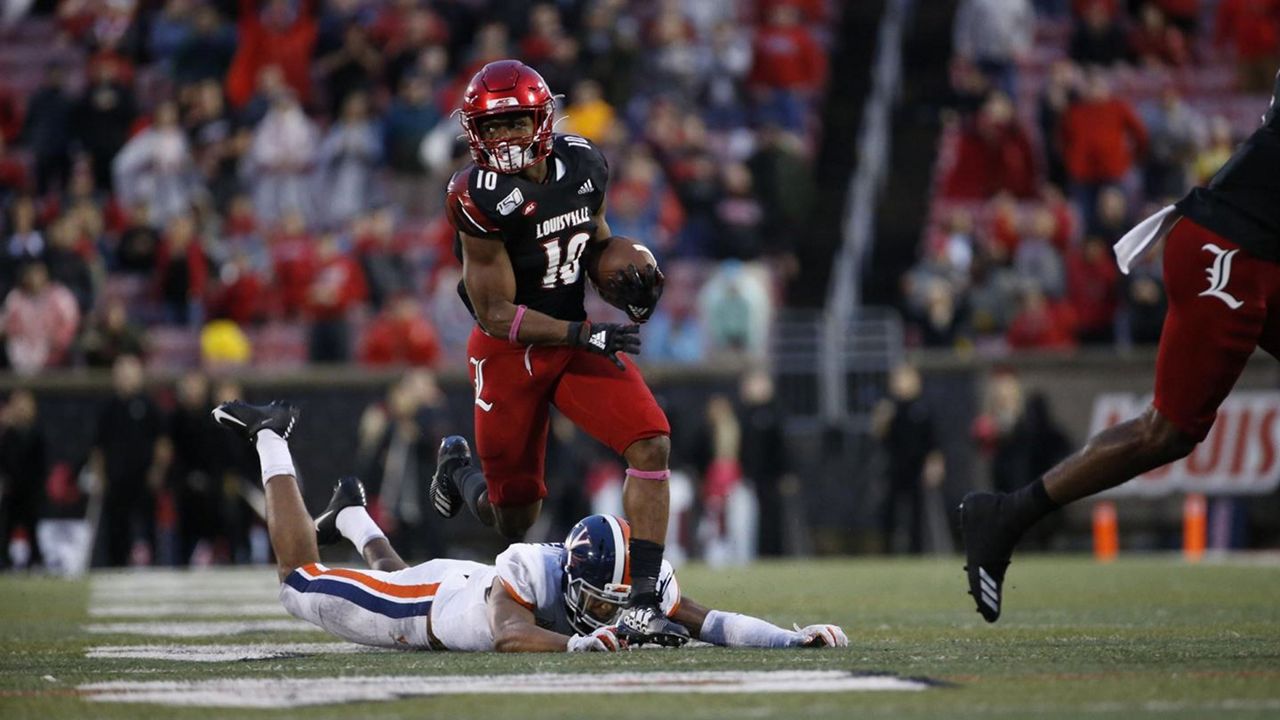LOUISVILLE, Ky. — There are many questions to be answered about the new rules allowing college athletes to profit off their name, image and likeness, UofL Athletic Director Vince Tyra said in a press conference Friday. But one thing that’s already become clear is that some student-athletes are going to be paid.
“There will probably be eye popping headlines about student-athletes making six-figure deals,” Tyra said.
He did not name any athlete in particular or speculate on how quickly such a situation would come to pass, but Tyra did say he would not be surprised to pull into the parking lot at UofL and park next to a student-athlete's Mercedes. “I think that will happen,” he said.
Tyra’s prediction illustrates the new world college sports will enter on July 1, when student-athletes in Kentucky and a handful of other states are allowed to profit off their name, image and likeness, or NIL. The rules, which the NCAA hopes to streamline across all 50 states, will allow student-athletes to endorse businesses and products, get paid for appearances and conduct business in a way that was long forbidden in college sports.
Tyra said the looming change is drawing interest from student-athletes, recruits, and boosters as the athletic department works to set up policies and procedures to guide the process.
Though the university will not be a party to the transactions between student-athletes and those choosing to hire them, it will help ensure the propriety of the deals and protect student-athletes, UofL Associate Athletic Director Matt Banker said.
That process has already begun. Throughout the month of June, student-athletes were offered the chance to participate in education sessions with the NIL changes in mind. And in the fall, more will be available, including law clinics to help examine contracts and a course in the school’s Sport Administration Program called “NIL in College Sports.”
“These are kids who are going to leave their baseball glove at home before they go to the College World Series,” Tyra said. “We've got to help them as much as they can.”
Guidance may be needed more in Louisville than it is in other college markets. Tyra said the size of city and the lack of competing professional teams is likely to make for a competitive NIL market for student-athletes in Kentucky’s largest city.
At his own press conference in Lexington, University of Kentucky Athletic Director Mitch Barnhart was less eager to speculate on what opportunities might arrive for Wildcat athletes. He repeatedly called for federal legislation to replace the current patchwork of states laws, executive orders, and, likely on its way next week, NCAA rules allowing schools to govern the process themselves.
He did make one prediction though. “I think there will be opportunities for some young people that will be greater than others,” he said, adding that teams will face the challenge of not letting the differing NIL opportunities create friction in the locker room.
Barnhart also said he hopes that academics and the commitments to the teams remain the motivating factors for student-athletes. “I hope that continues to be the reason we play, the relationship and the ability to share moments,” he said.



